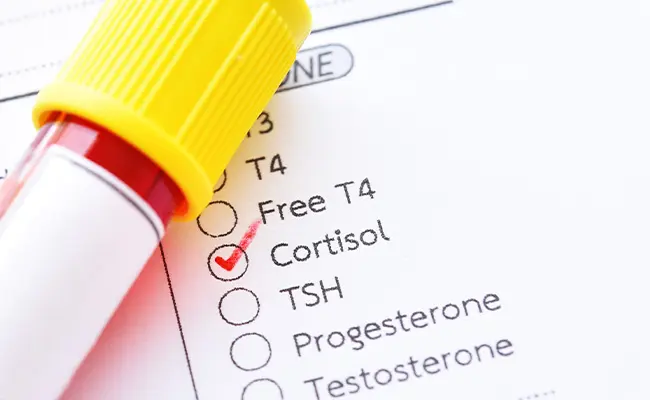Cortisol: More Than Just the “Stress Hormone”
When people hear the word “cortisol,” they often think about stress. While it’s true that cortisol is a critical part of the body’s stress response, its role in human health goes much deeper.
Cortisol is a steroid hormone produced by the adrenal glands — two small but powerful glands that sit atop the kidneys. Its production is tightly regulated by the hypothalamic-pituitary-adrenal (HPA) axis, a complex system involving the brain and adrenal glands. This system helps the body respond to internal and external stressors in a precise and balanced way.

What Does Cortisol Actually Do?
Cortisol plays several vital roles in the body, including:
- Regulating blood pressure and cardiovascular function
- Managing blood glucose levels, especially during fasting
- Modulating the immune response by reducing inflammation
- Helping the body metabolize fats, proteins, and carbohydrates for energy
- Supporting the wake-sleep cycle (circadian rhythm)
In short, cortisol is essential for survival. It helps the body maintain homeostasis during daily life and crisis situations.
What Happens When Cortisol Becomes Imbalanced?
Like most hormones, cortisol needs to stay within a healthy range. Both excess and deficiency can lead to significant health issues.
High Cortisol Levels
Chronically elevated cortisol can occur due to persistent psychological stress or, less commonly, conditions like Cushing’s syndrome. Symptoms of high cortisol include:
- Weight gain, especially around the abdomen and face
- Insomnia or poor sleep quality
- Mood swings, anxiety, and depression
- Elevated blood pressure and blood sugar
- Fatigue and muscle weakness
- Easy bruising and slowed wound healing
Long-term cortisol elevation can increase the risk of metabolic disorders such as diabetes and cardiovascular disease.
Low Cortisol Levels
Conversely, cortisol deficiency, seen in conditions like Addison’s disease or adrenal insufficiency, can lead to:
- Severe fatigue
- Unexplained weight loss
- Low blood pressure, dizziness, or fainting
- Salt cravings
- Hyperpigmentation of the skin (in Addison’s disease)
Low cortisol is less common but can be life-threatening if not recognized and treated appropriately.
Chronic Stress and Cortisol Dysregulation
Even before cortisol levels become pathologically high or low, chronic daily stress can disturb normal cortisol rhythms. This may present as “adrenal dysfunction,” leading to symptoms like:
- Morning fatigue despite adequate sleep
- Afternoon crashes
- Difficulty relaxing or sleeping at night
- Increased cravings for salty or sugary foods
Although “adrenal fatigue” is not a formally recognized medical diagnosis, it reflects the real physiological burden that persistent stress places on the HPA axis.
Supporting Healthy Cortisol Levels
Maintaining healthy cortisol balance involves lifestyle strategies that protect the HPA axis:
- Prioritize high-quality sleep (7-9 hours per night)
- Manage daily stress with mindfulness, meditation, or breathing exercises
- Balance blood sugar with consistent meals rich in protein, fiber, and healthy fats
- Engage in regular but moderate physical activity
- Seek medical evaluation if symptoms of imbalance are present
Understanding cortisol’s central role reminds us that hormonal health is foundational to overall well-being. Cortisol is not the enemy; it’s a critical hormone that, when properly regulated, keeps the body resilient, energetic, and stable.
If you’re experiencing symptoms that could suggest a cortisol imbalance, speak with a healthcare provider knowledgeable in endocrine health. Early recognition and support can make a profound difference.
